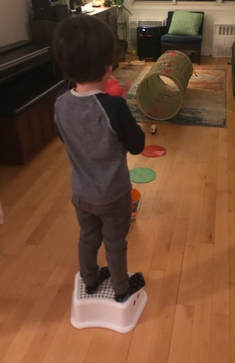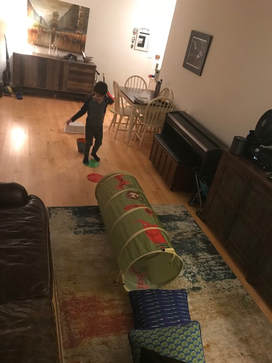|
Nili Geldwert, M.A. CCC-SLP and Julie Pike, M.A., CCC-SLP Looking for some playdate activities to promote social engagement? We know it’s sometimes difficult to actually get two children to agree on an activity, complete it and yes, have fun doing it! So, we did it for you. We broke up the activities into three age groups: lower elementary, upper elementary and middle school kids. This post is specifically geared towards lower elementary age children. Keep your eyes out for the upper elementary and middle school playdates, AKA “hanging out,” post shortly. General Guidelines 1. It’s important to remember the goal is for the kids to figure out how to solve small problems, compromise, negotiate and plan. Joint activities require a lot of social thinking - thinking about you, thinking about me (™) so be prepared to be flexible about the outcome. 2. Below are some suggested social language phrases that you should try to model to encourage positive interactions.
3. Keep in mind that our role as a parent is to help facilitate the playdate, and not to take it over. It might not run as smoothly as you planned. Play could be messy and unpredictable. Lower Elementary Activities 1. Pretend-play fosters joint imagination, spontaneous language use and flexibility. It takes a little pre-planning, so gather materials beforehand and get ready to play. Some themes may include: train conductor, opening a restaurant, going to the grocery store, celebrating a birthday party or doctor. Help the kids decide on roles. You could give each child a name tag or props to help indicate their role. You could also review some of the “jobs” each role has. For example, if you create a restaurant theme, it’s the waiter’s job to serve the food and the customer's job to order what they want. 2. Baking also promotes a shared experience that helps facilitate turn taking and roles. For this activity the pre planning should involve choosing your baked good, without the children’s input. In this situation, giving choices could be a pit fail even before you have started. Allow for choices later on in the activity such as picking toppings. You should also gather and organize all the baking ingredients and tools needed. By taking the time to organize, it will decrease any confusion, and hopefully help avoid a very messy kitchen. 3. Some games are best with less stuff. This allows children to really engage with one another and not get lost in the materials.
Post Playdate After the playdate has finished take some time to reflect on what worked and what didn’t work. Perhaps an activity lasted too long or your child started using some of the phrases that you have been modeling. It is always helpful to take photos during the playdate so that you could help solidify the experience. You and your child could make an album together and write 1 or 2 sentences about each photo. When you do this, focus on the feelings that were being shared. Then kick your feet up and give yourself a pat on the back for a wonderful and probably imperfect, perfect playdate.
|
Archives
December 2018
Categories |


